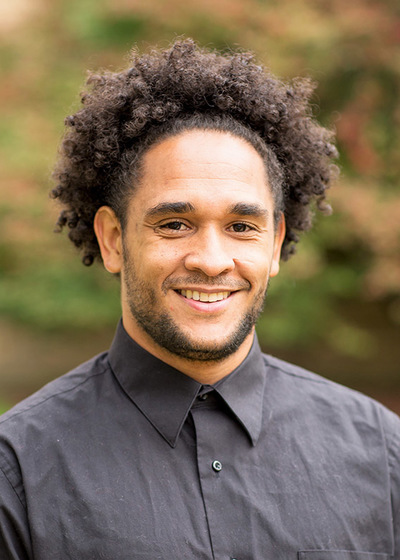
“Black America is tired. And I imagine you came here, too, because you too are tired. You see what’s going on and you see something’s not right.”
Black Lives Matter-South Bend recently hosted a series of public events and educational forums aimed at broadening the conversation around racial justice. Among the sessions was an online presentation by Emmanuel Cannady, a member of the organization, doctoral candidate in sociology at the University of Notre Dame, and Klau Center graduate affiliate. Cannady offered a set of concrete steps that white people could take to help further the cause. He spoke to an online audience of over 300 on Facebook Live and Zoom on June 6, 2020
Enlisting the participation of white people in the fight for racial justice requires a frank understanding of their place in the history and support of the status quo, according to Cannady. “I have lived a life full of support from white people,” he began, “but white people and whiteness have also been a significant source of pain. And this is true for so many people of color.” A significant step can be taken forward, he suggested, by recognizing the shared consequences of both living with an unjust system, and building a new, just one. “Think about how much more advanced we could be as a country, or as a species, if we weren’t still fighting a 400-year-old fight. So the fight for racial justice isn’t just about the liberty of Black people, it’s a fight for the liberty of the humanity of us all.”
“I see white privilege as a tool…and all tools have multiple purposes.”
Rather than focusing on shame and division around white privilege, Cannady suggested that a more constructive approach for white people would be to recognize its present reality, and use whatever benefit it may offer in making voices for change heard. “Privilege should always be checked,” he said, “but the moment is too dire for us to use this to beat each other up with…This definitely has to change, but if given a platform, you can use your white privilege for good because let’s be honest…people will listen.”
Among the steps Cannady suggested white people can take are to listen with intention and humility; become educated, but think twice before laying the burden on Black people; volunteering to become a body shield or legal observer; and donating time or resources.
Key to changing the conversation, he offered, is to be mindful of the language used to frame it. The distinction drawn in media between “peaceful protests” and “riots” serves, Cannady suggested, to overlay moral implications onto demonstrations, effacing the call for action on more core issues.
“Stay the course”
In conclusion, Cannady offered the fundamental step necessary for a sustained effort. “It’s going to be hard, but we need you to stay the course,” he explained. “There are going to be times when you’re mad, and when you’re mad, stay the course. Times when white fragility is going to be triggered; stay the course. Times when you say something or do something that keeps our current system in place; stay the course. Times when you just want to be comfortable again; stay the course.”
The presentation may be viewed on the Black Lives Matter-South Bend Facebook page, here.